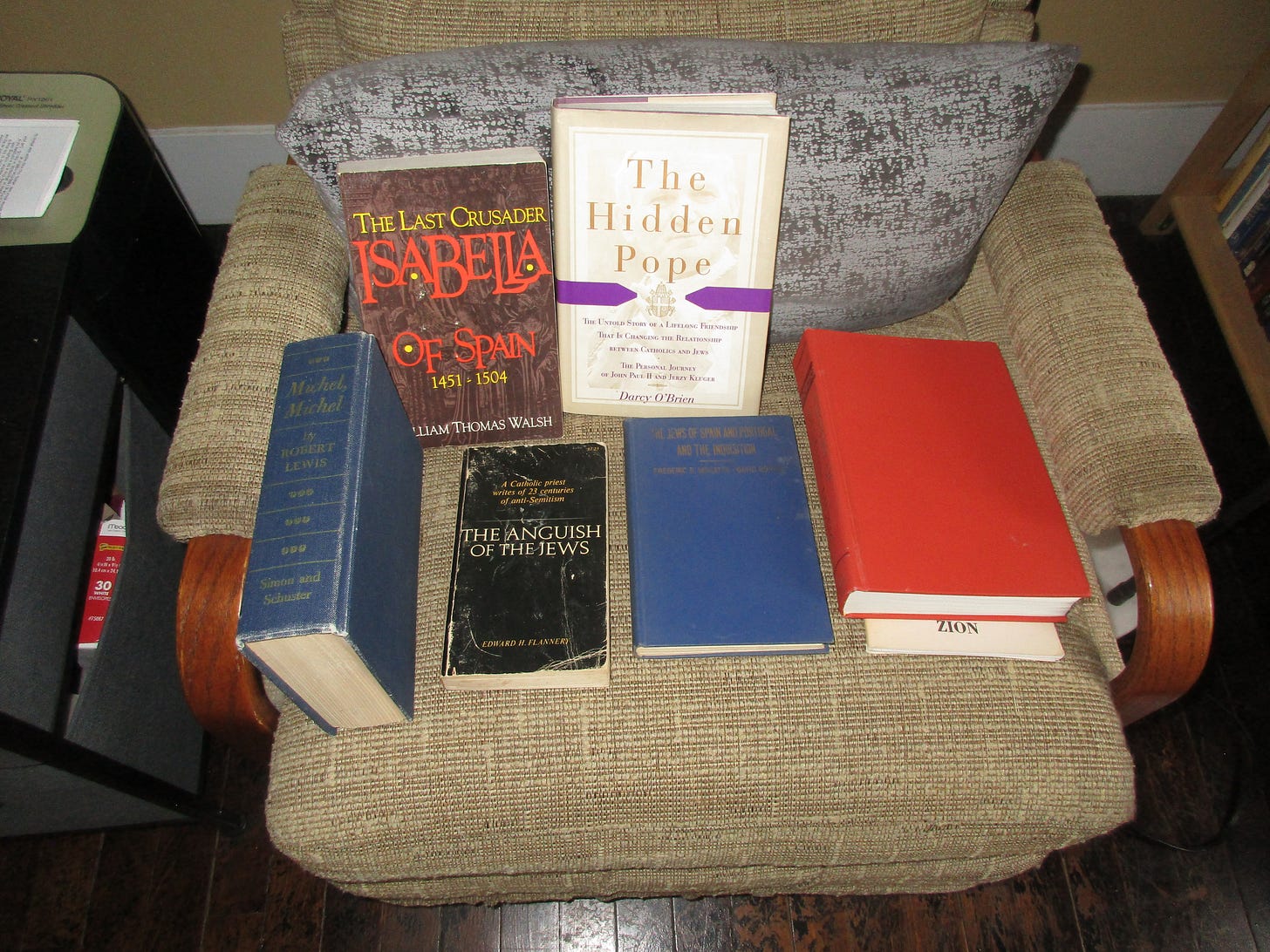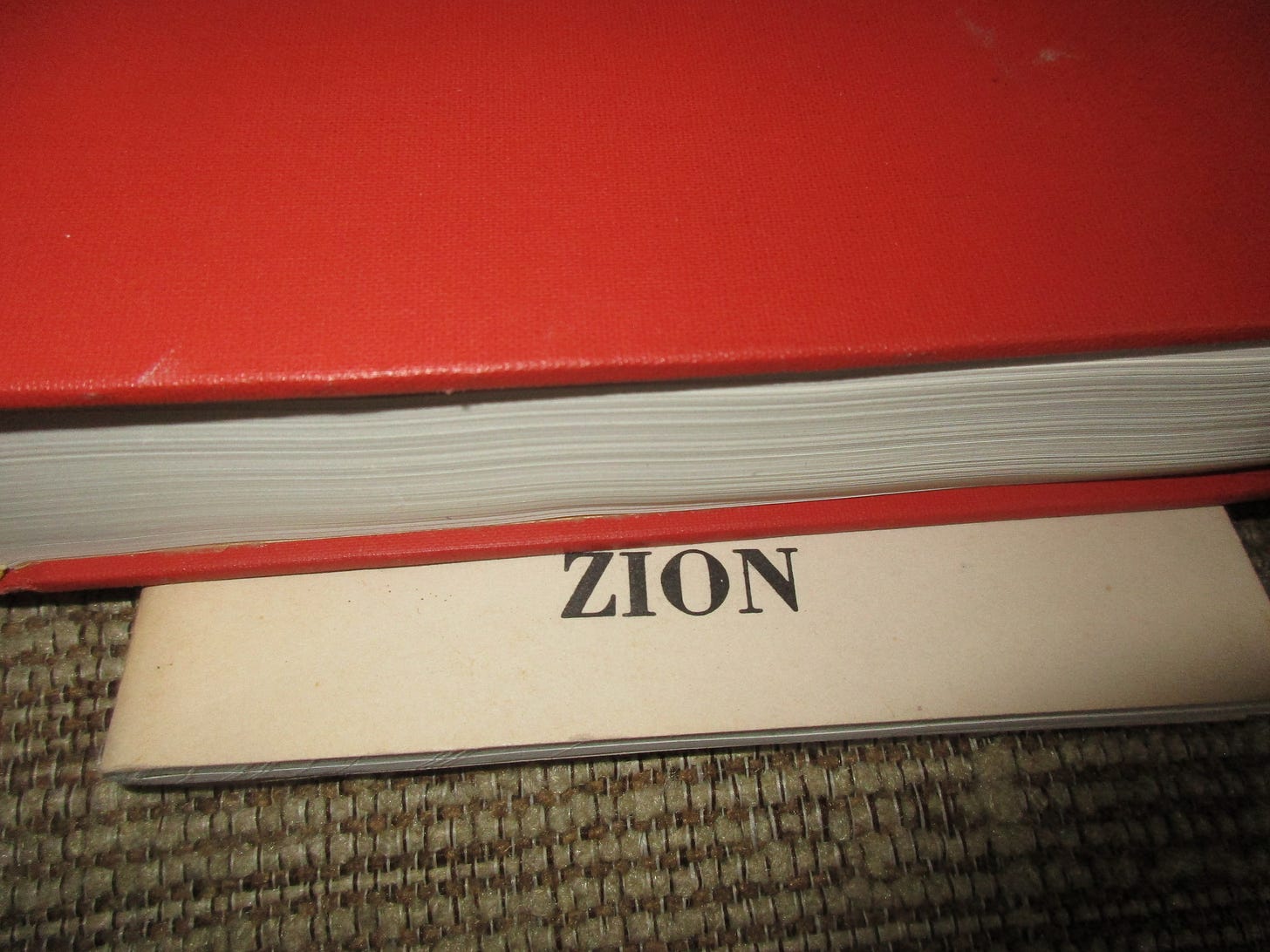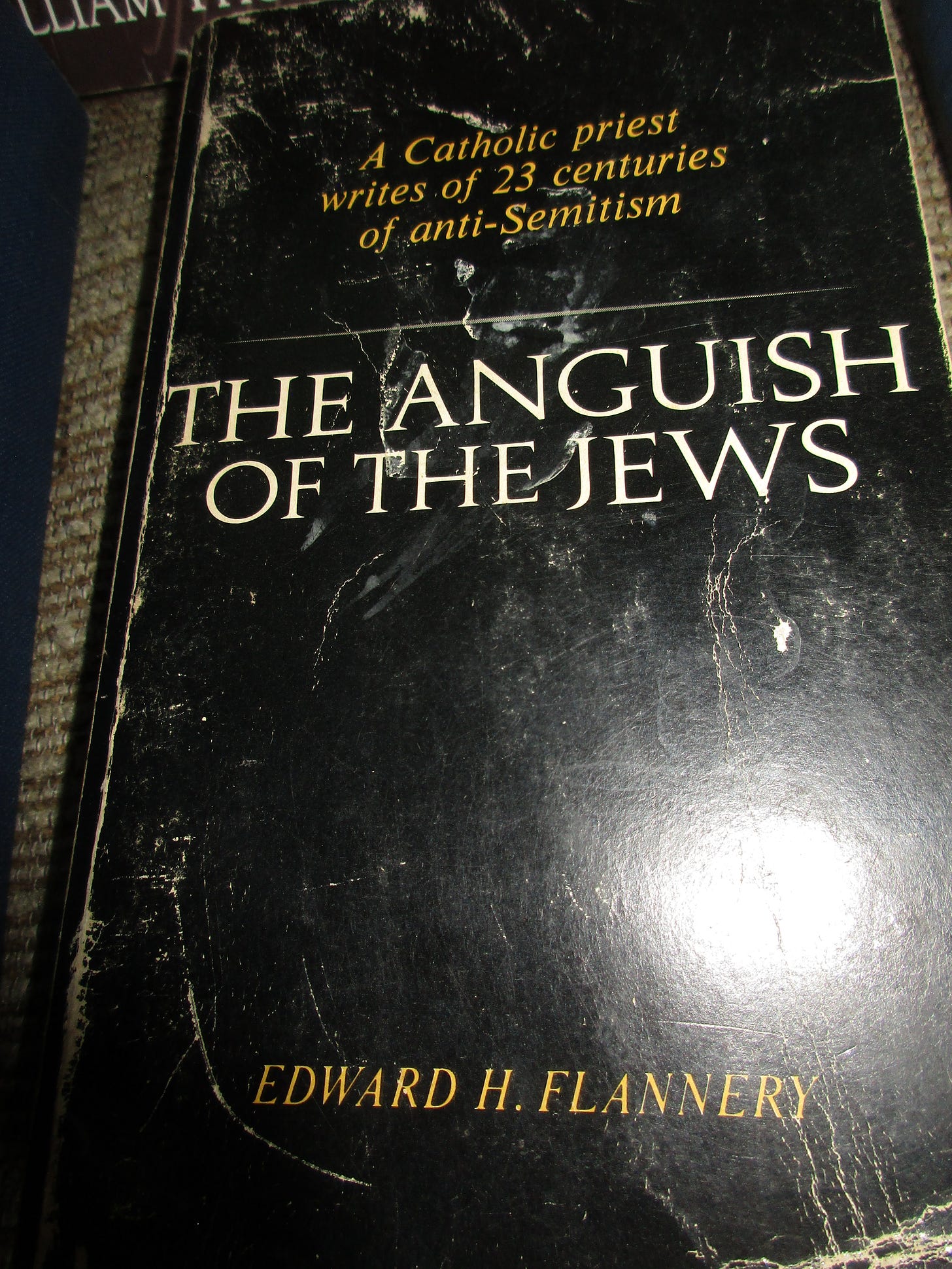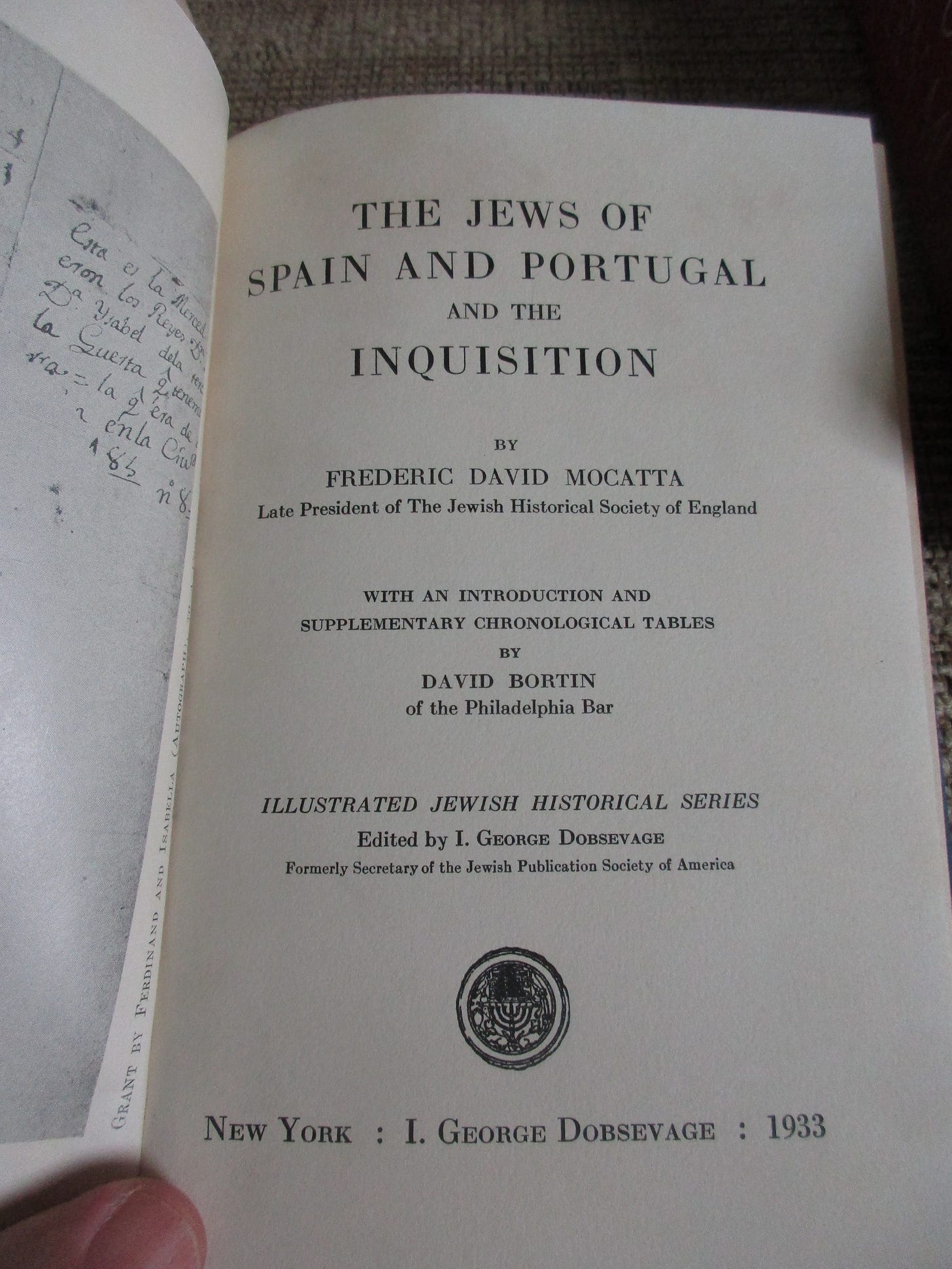This is adapted from a previous Substack (no longer extant), incorporating new material.
The question of relations between Catholics and Jews is answered in many ways. Sometimes Catholics have been prone to anti-Semitism, and sometimes relations between the two religions have been peaceful. Pope John Paul II did much to use his office, coupled with his experiences growing up in Poland, to calm the troubled waters between us.
Lat year I reviewed a new book from EWTN and Sophia: The Pope’s Cabinet: Pius XII’s Secret War for Saving Jews by Vatican archivist Johan Ickx. (It could have been a much better book. See my review at Catholic Exchange.) It looks like it will decisively turn the tide on the myth that Pius XII was at best unhelpful to the Jews and at worst a Nazi sympathizer. The latter view was taken by John Cornwell in his infamous Hitler’s Pope: The Secret History of Pius XII. A more recent book on the topic is a novel by Joseph O’Connor: My Father’s House, a gutter-dragging book that, while it does show some of the real people helping Jews and escaped POWs, also portrays Pius XII as a heartless, arrogant, aloof despot. I could not even finish the book and returned it to Amazon. (O’Connor was none-to-pleased with my comments, and we had a bit of a back-and-forth over it.)
Books I do recommend on this would start with the readable and well-known account by J.P. Gallagher of Msgr. O’Flaherty, The Scarlet and the Black (also a good movie starring Gregory Peck, Christopher Plummer, and John Gielgud). A fuller treatment is The Pope’s Jews by Gordon Thomas. On more theological terms Dr. Brent Pitre has written three excellent and accessible books: Jesus the Bridegroom, Jesus and the Jewish Roots of the Eucharist, and Jesus and the Jewish Roots of Mary. For a Jewish convert to Catholicism’s story, look at Salvation Is From the Jews by Schoeman and Honey From The Rock: Sixteen Jews Find the Sweetness of Christ edited by Schoeman.
Finally, I stumbled across a 1967 novel titled Michel, Michel by Robert Lewis. It is set in France in the years after WWII, and concerns a Jewish boy unofficially adopted by a French woman after his family is apparently wiped out by the Nazis. But that proves to not be the case, and a long legal and moral battle plays out. It is certainly not an ardently pro-Catholic book, but neither does it depict the Jewish characters and their allies as spotless. It is a long book but I am glad I read it.
These books came from several places. The Hidden Pope book about JPII’s friendship with a Jewish family came from a tranche of used books I bought at a local traditional chapel’s bookstore; it also contained the book I have kept mostly shrouded. The title ends with Zion, and it is a notorious and wretched fabrication, but still influential. It cannot be named. It is the Voldemort book…or, better yet, the Sauron book. (Incidentally, it is covered up by a copy of Grout’s A History of Western Music, Revised Edition, purchased at a recent book sale.) I feel safe saying that “Sauron” and JPII span the gamut of Catholic attitudes towards the Jewish people. I’ve also included a copy of William Thomas Walsh, The Last Crusader: Isabella of Spain, 1451-1504, which is a TAN reprint of the volume first published in 1930 by Robt. McBride.
Here we have The Anguish of the Jews: Twenty-Three Centuries of Anti-Semitism by [Fr.] Edward Flannery (NY: Macmillan, 1965, pb, 1964 Cdl. Spellman imprimatur). “He blames whoever is culpable, regardless of stature in the history of the Christian community. The result is a painstaking account of the guilt that casts its shadow over many, if not all, of Western Civilization’s proudest accomplishments” (from the back cover).
Finally, we have this intriguing volume. (Publishing information in photo, but it was originally published in 1877.) It is a blue cloth volume. Bortin, writing in 1933, states in the Introduction: “Who would think that even in free America the seed of intolerance would take root in a soil tilled with the blood of heroes and martyrs for the principles of political and religious liberty, equality of opportunity, and universal brotherhood?” (xii).
And who is my brother?
“But as many as received him, he gave them power to be made the sons of God, to those that believe in his name” (Jn. 1: 12, DR).








A good recent podcast on the subject from Crisis: https://crisismagazine.com/podcast/can-catholics-be-zionists-guest-dr-matthew-tsakanikas